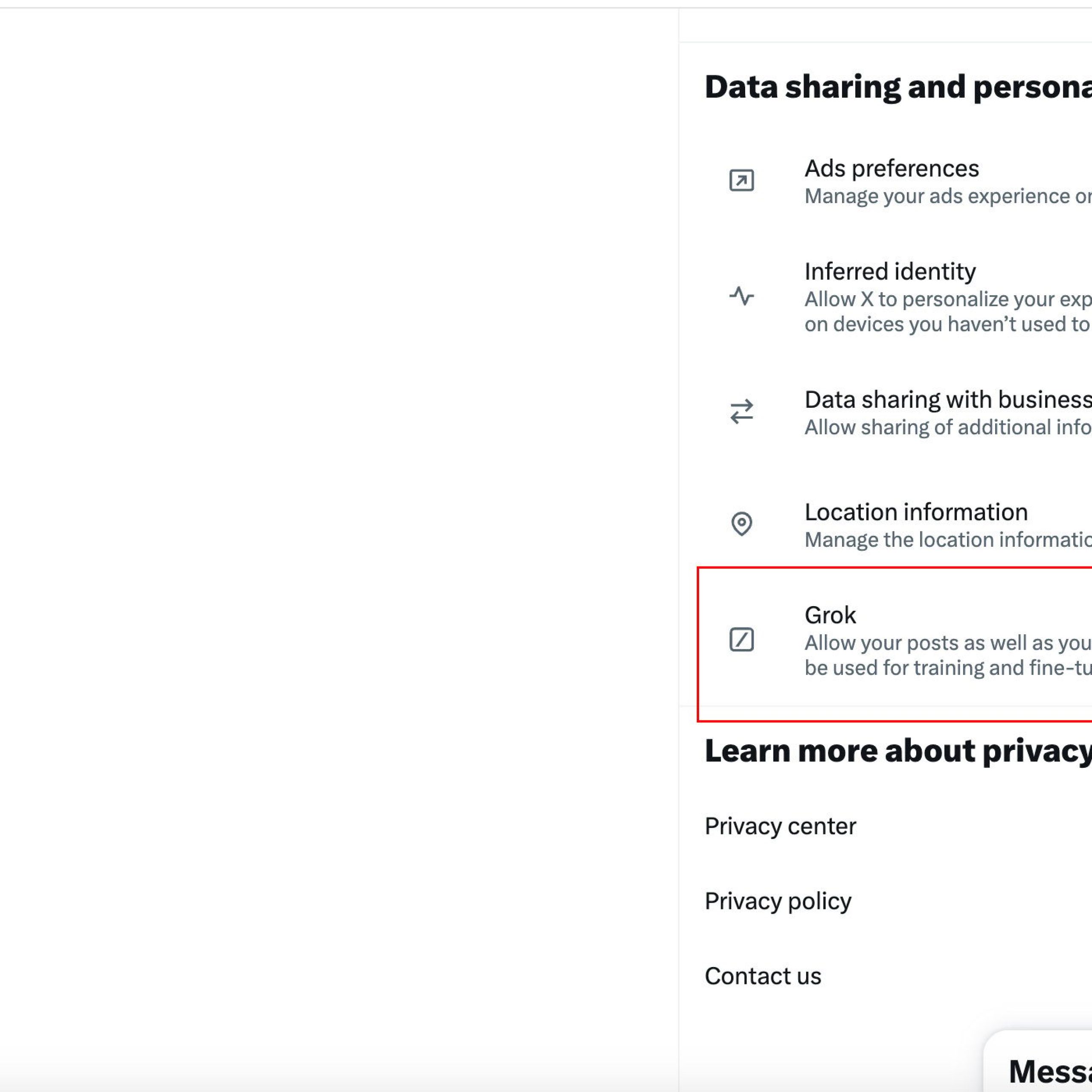The X platform has announced the addition of a new data permission setting. This automatic option allows users to share their posts and engagements with the X platform AI chatbot Grok. This new data permission setting allows the X platform to utilize users’ data to train and improve the abilities of Grok.
Many users and privacy advocates have voiced their concerns about the introduction of this setting, as the users’ data might be shared with a third party under the ownership of X. The company aims to improve Grok’s performance, however, this has fueled concerns about the users’ consent and the transparency of this process.
X users raise privacy concerns amid quiet rollout of new app setting
The new option, which is active automatically, uses the public posts and interactions from users to improve Grok’s performance. At first, the platform despite being an integral part of Grok’s enhancement, had not clarified how the user data would be used in this process. However, the new option seems to address this gap, possibly as a response to the EU regulatory requirements which mandate explicit user consent before using their data.
Many users might be unaware of this new option as X has not publicized it. This has raised concerns as it is being termed as a lack of transparency in the company’s data practices and impacts on user privacy. Given that Grok can spread inaccurate information and considering the history of controversies around the platform, some people might prefer not to participate.
New data setting raises regulatory compliance questions
This decision may also be influenced by future directives and the necessity of following data protection regulations. Nonetheless, failure to communicate prominently about this feature has resulted in many users not knowing about it which might lower their willingness to share data.
For the development of Grok, the platform relies on public posts. This is different from the rest of the AI tools that utilize updated and unedited data. However, many users and regulators are questioning the opaqueness of this system claiming that the information provided about the usage of their data is insufficient.





